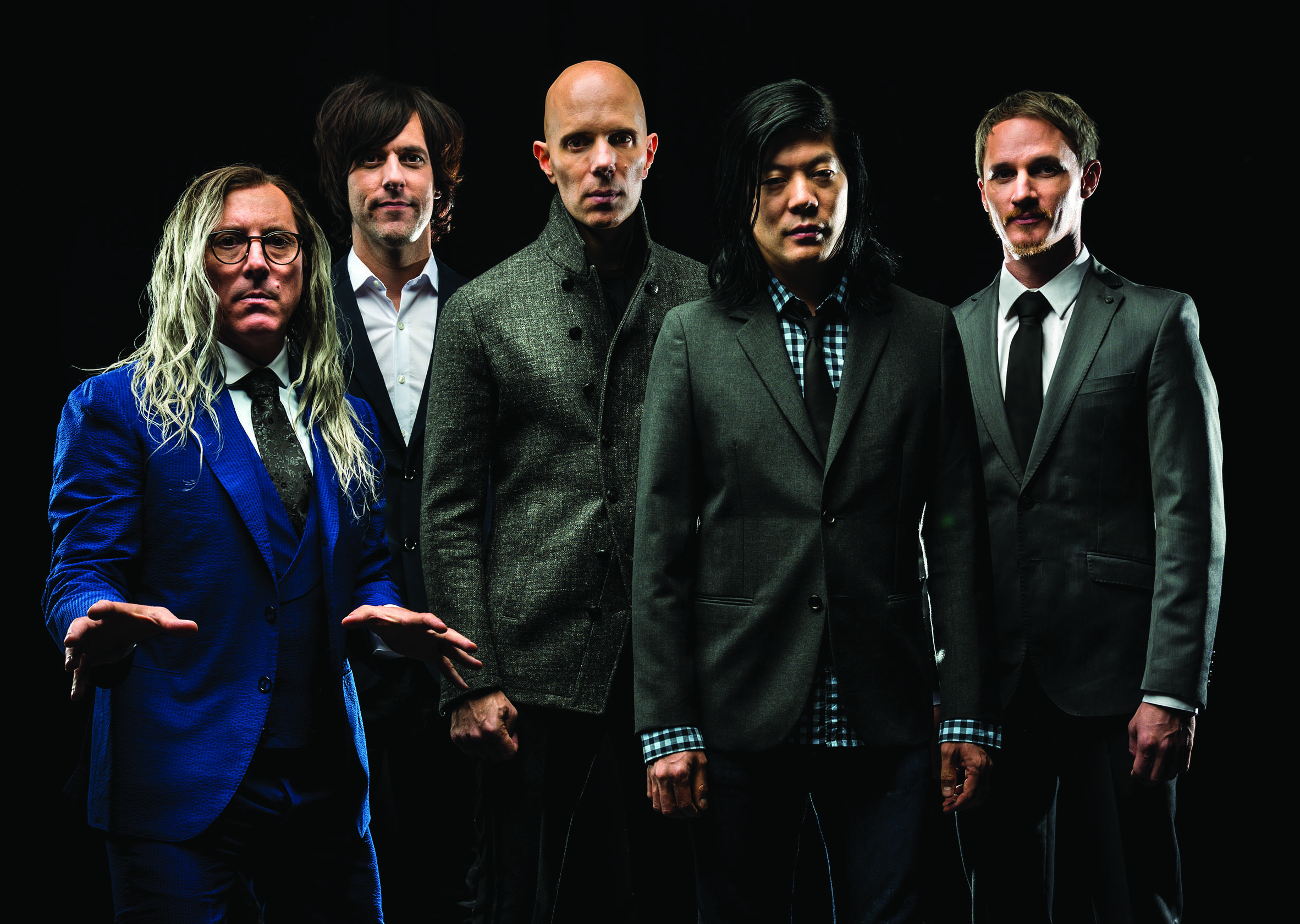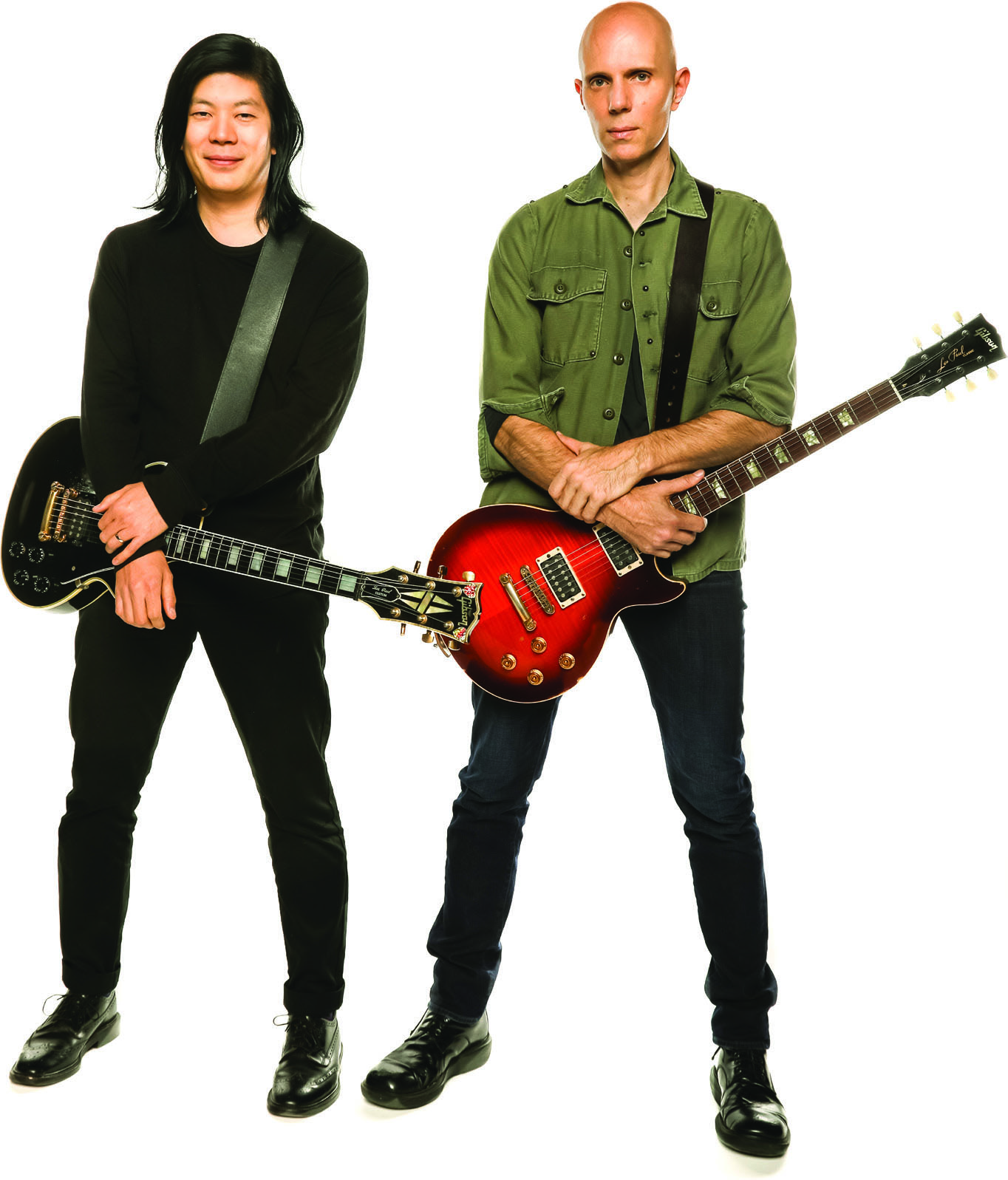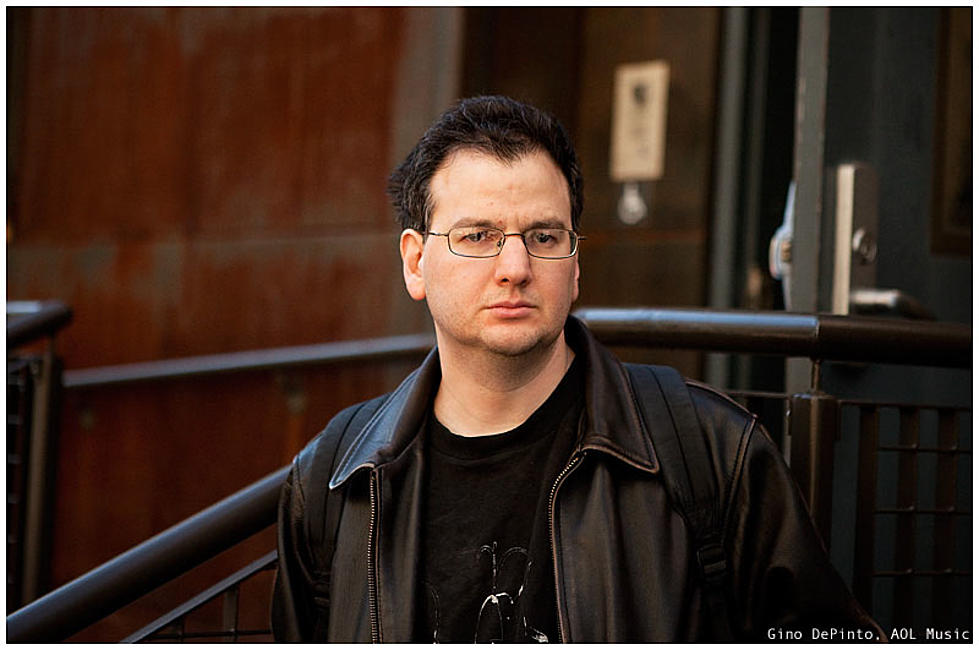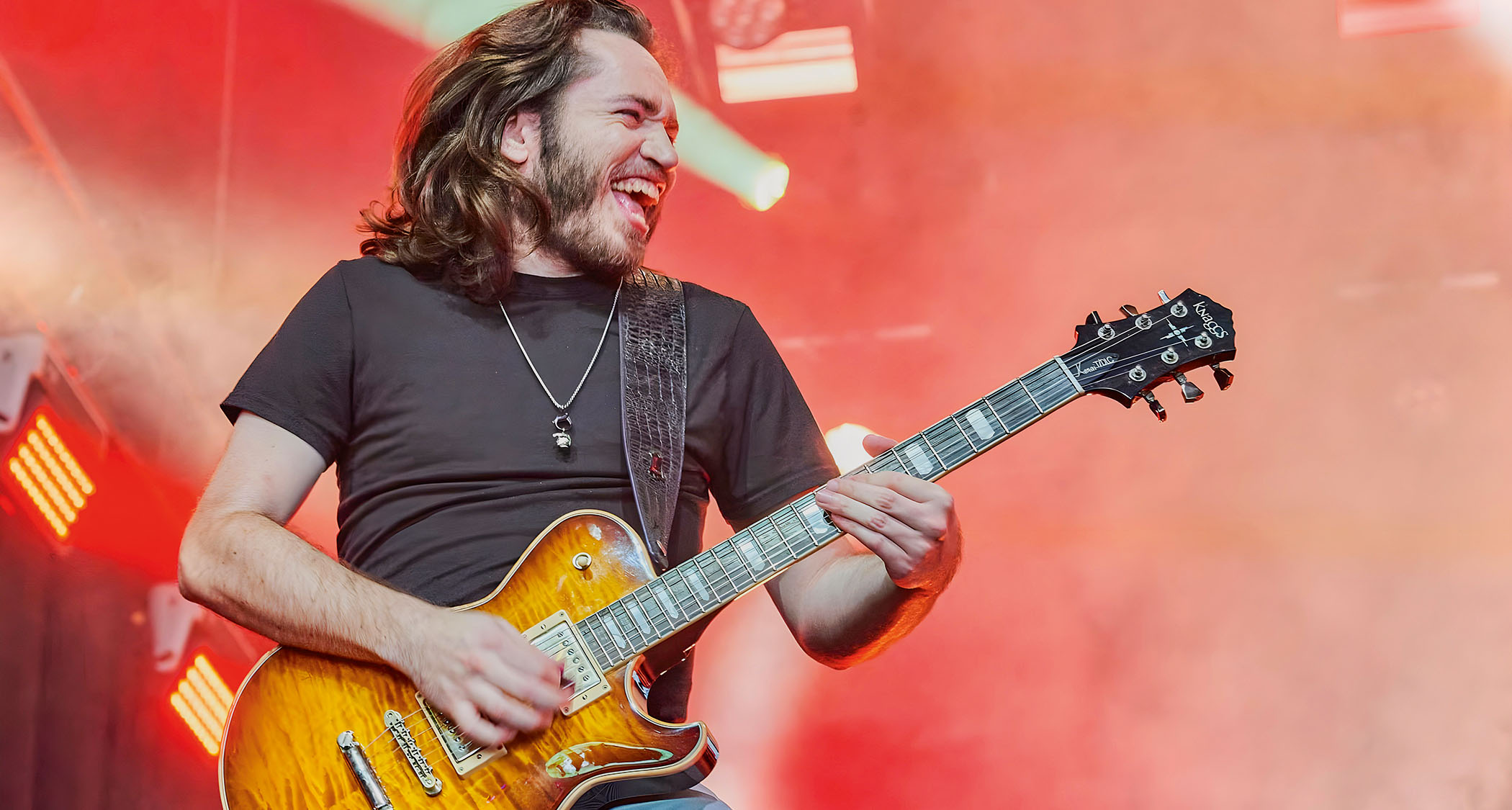How the Stars Aligned for A Perfect Circle and Their New Album, 'Eat the Elephant'
All the latest guitar news, interviews, lessons, reviews, deals and more, direct to your inbox!
You are now subscribed
Your newsletter sign-up was successful

Despite their popularity and success, A Perfect Circle don’t have the luxury of working like most other bands. Songwriter and guitarist Billy Howerdel spends years writing songs at his home studio, waiting for vocalist Maynard James Keenan (Tool, Puscifer) to find a window to write and record.
“Tool did an album in 2006, and I did one with my other band Ashes Divide in 2008, so I would have thought that three years after that—in 2011 or 2012—we would have put another record out,” Howerdel says. “But that didn’t happen.”
Finally, last winter, more than five years after A Perfect Circle’s seven-week reunion tour in 2011, Howerdel got the first solid signs that a follow-up to APC’s 2004’s Emotive could be on the way.
“Maynard came over in February and we threw down what I think was the beginning of ‘Doomed,’ ” Howerdel recalls. “That was the official start of the new album, Eat the Elephant, and the point when we were both determined to do this again.”
When the band toured in the spring, Howerdel brought a traveling recording studio with him so he could work on songs in the band’s dressing room. There, he finished the ominous and melancholy “Disillusioned,” which sounds like a cross between a more surreal Smashing Pumpkins and a less electronic Radiohead.
Whether being back on the road inspired A Perfect Circle to commit to their latest batch of textural, dark and innovative songs, or whether it was just the right political and cultural climate for Maynard to want to rant about politics and the environment, one thing’s certain: Eat the Elephant is a welcome continuation of the band’s creative arc, which began with the proggy hard rock of 2000’s Mer de Noms, continued with the bleak but beautiful concept album, Thirteenth Step, in 2003 and halted for 14 years after the radically re-contextualized covers of 2004’s Emotive.
The greatest musical difference between Eat the Elephant and A Perfect Circle’s other albums involves Howerdel’s compositional approach. Instead of starting with guitar riffs, arpeggios or effect loops as he did in the past, he began most of the songs on keyboards and then either transposed the material to guitar or used the guitar to provide complimentary melodies and atmospheric flourishes.
All the latest guitar news, interviews, lessons, reviews, deals and more, direct to your inbox!

“A few years ago I decided to dig fully into synths and keys, which I was very bad at,” he says. “And once I became a little better it allowed me to push my creativity instead of falling into a pattern.”
When he was writing guitar parts for the demos, Howerdel reached for his Les Paul Classic 1960 reissue and plugged into a modified Marshall 1978 JMP Super Lead 100 or a smaller Super Goldtone GA-30RV.
He toyed with other gear that was lying around the studio when he tracked the album with Dave Sardy and added a reverb pedal to his effect chain. “Having reverb in front of the amp can create a lot of ambience,” he says. “If you go into a reverb pedal and then feed it into a distorted amp, you lose definition and you gain this wall of sound that’s hard to control. You’re left grabbing the reigns and trying to make this thing do your bidding, and that doesn’t always work. But when it does it’s really exciting.”
With the help of guitarist James Iha (Smashing Pumpkins), bassist Matt McJunkins and Puscifer drummer Jeff Friedl, Howerdel and Keenan finished Eat the Elephant in early 2018 and scheduled a tour. Then, in typical A Perfect Circle fashion, Smashing Pumpkins announced their reunion, which prevented Iha—who remains a member of APC—from touring with the band until June. In the interim, longtime friend of the band Greg Edwards (Failure, Autolux) will perform on the dates, which begin April 14 in Tucson, Arizona.
Remaining fluid through such transitions has kept Howerdel grounded. A Perfect Circle will always be his primary gig, but he realizes-everyone else in the band has different priorities. So when he writes these days, he keeps his options open for using the music in Ashes Divide, a film score or APC.
“When APC will reconvene is never exactly defined,” Howerdel admits. “That frustrating, for sure, but maybe that contributes a little bit to the magic that can happen when we do get together—that feeling of not being predictable, not punching a clock. There’s an artistic value to it. But I’d still prefer to tour, make a record, take a little break, then tour and make another record.”
Jon is an author, journalist, and podcaster who recently wrote and hosted the first 12-episode season of the acclaimed Backstaged: The Devil in Metal, an exclusive from Diversion Podcasts/iHeart. He is also the primary author of the popular Louder Than Hell: The Definitive Oral History of Metal and the sole author of Raising Hell: Backstage Tales From the Lives of Metal Legends. In addition, he co-wrote I'm the Man: The Story of That Guy From Anthrax (with Scott Ian), Ministry: The Lost Gospels According to Al Jourgensen (with Al Jourgensen), and My Riot: Agnostic Front, Grit, Guts & Glory (with Roger Miret). Wiederhorn has worked on staff as an associate editor for Rolling Stone, Executive Editor of Guitar Magazine, and senior writer for MTV News. His work has also appeared in Spin, Entertainment Weekly, Yahoo.com, Revolver, Inked, Loudwire.com and other publications and websites.

